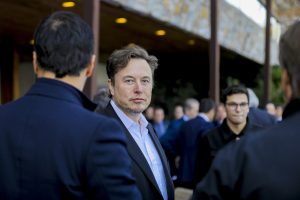In an ambitious move to accelerate electric vehicle development and keep pace with industry leader Tesla, Mercedes-Benz has reportedly turned to its Formula One team for engineering expertise. The efforts are reportedly designed to significantly reduce the development times of new vehicles, allowing Mercedes to gain a competitive edge in the EV market.
Steven Merkt, head of transportation solutions at TE Connectivity, suggests that Mercedes’ F1 team involvement could help the company reclaim its position as an innovation leader. Carmakers like Mercedes were considered leaders in combustion engine technology, but with the emergence of EVs, newer automakers like Tesla have taken a notable lead.
“Nobody feels the pressure more than Mercedes to be innovation leaders here. They’ve got to push it out or they’re no longer Mercedes,” Merkt said.
Mercedes’ efforts have already led to the creation of the EQXX concept car, which boasts an impressive range of over 1,200 km (745 miles) per charge. The EQXX’s development took just 18 months, thanks to the Mercedes F1 team’s experience in working rapidly to squeeze efficiency from engines and electric motors, aerodynamics, and rolling resistance, as noted in a Reuters report.
Mercedes’ Chief Technology Officer, Markus Schaefer, highlighted the competitive advantage this collaboration gives the veteran automaker. The automaker has reportedly managed to reduce the time required for new vehicle development from 58 months to the low 40s, with an even faster target for derivative models.
“We have an edge here with Formula One that others don’t have. Tesla doesn’t have it. Other teams don’t have it,” the executive noted.
Tesla, for its part, has not issued a comment about the matter.
The speed of the development of new vehicles is becoming an increasingly important part of the automotive industry. EV leaders such as Tesla have created an environment that revolves around quick developments and constant changes. Rivals from China have also cut the development time to an average of just 2.5 years. To keep up with this trend, it is no surprise that Mercedes-Benz is tapping into its Formula One team’s talents.
“Efficiency is a key enabler to accelerate adoption of EVs globally,” Schaefer said.
Mercedes-Benz is not alone in its efforts to be faster and more efficient. Other automakers, such as Ford and Volkswagen, are similarly focusing on speed and efficiency, with Ford planning a return to F1 racing in 2026 and Volkswagen aiming to reduce its time to market for new Chinese models. Volkswagen is reportedly looking to cut its time to market for new Chinese models from four years to the country’s 2.5-year average, allowing the company to keep pace with domestic rivals.





